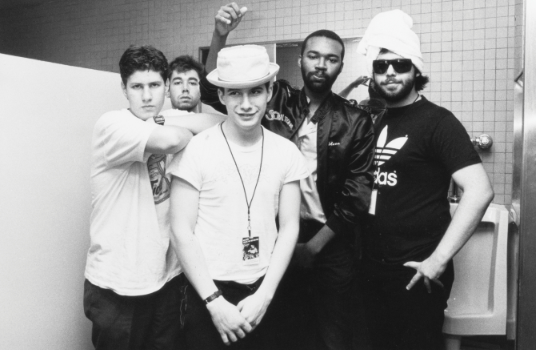
Not sure if you heard about the new Nine Inch Nail’s album. They’ve made it available in many different configurations and options– including a version that’s free. The interesting story here isn’t how many fans will download it for free, or even the masses that will buy the CD. The amazing thing is the 2,500 people that bought the $300 package– grossing the band $750k. It’s about those die-hard fans that are willing to support this type of thing.

Seth Godin discusses this phenomenon in his latest book- “Meatball Sundae.” He writes about authors who publish their own book that covers all of the Beatles’ studio sessions. The book’s price was a $100- nearly four times more than a typical book. They ended up selling a few thousand copies directly to die-hard fans. This grossed the authors more revenue than most books that sell many thousands to average fans.
Can the success of NIN and the Beatles’ book example translate into success for the traditional music industry? The first problem is that major record companies have no interest in selling just a few thousand pieces of product. The second issue is that the generic music fans, that labels have spawned throughout the years by releasing mediocre music, are too fickle to support artists on a long-term basis. New (mass) music fans have been afflicted with what I call Media A.D.D.. (No meds from Pfizer for this as of yet.) These fans, for the most part, don’t have the attention span to follow careers. This is the reason for success in the ringtone business. These new fans don’t have time for an entire song. Their mentality is- “just gimme the hook.” 30 seconds is all they want. In fact, they’ll pay a premium to cut all of the fluff out of hit songs, and get right to the hook. This sad situation has become reality when it comes to listening habits of the masses. Good news for bands or artists that have developed strong ties with a small group of fans- maybe just a couple thousand deep- make them potential long-term winners in the music business.
NIN’s Reznor is a possible Jimmy Buffet of sorts. Jimmy hasn’t been a relevant artist when it comes to the masses in years, but he’s very important to his dedicated, baby boomer Parrot-head fans. The goal for an artist looking to maintain a career in today’s music economy is to build a strong, uncompromised, slow-boil connection with their fans. If an artist can do this, then they might be able to sell limited-edition, higher-priced packages (i.e.- $300 fan packs or $100 books) that give more to less of an audience. On the other hand, the traditional corporate-released artist, whose name is known by the masses, will continue to sell plenty of .99 cent downloads, and if they’re lucky, plenty of $3.00 ringtones. However, since most of these relationships with fans have not been nurtured properly (ala decades of bait and switch albums that don’t deliver past the first hit single), their short-lived careers won’t permit them to reap revenue from those pricey mobile jingles for very long. On the other hand, those who develop strong, meaningful connections with two or so thousand fans, will hopefully be able to monetize that connection for years to come. -I.V.


